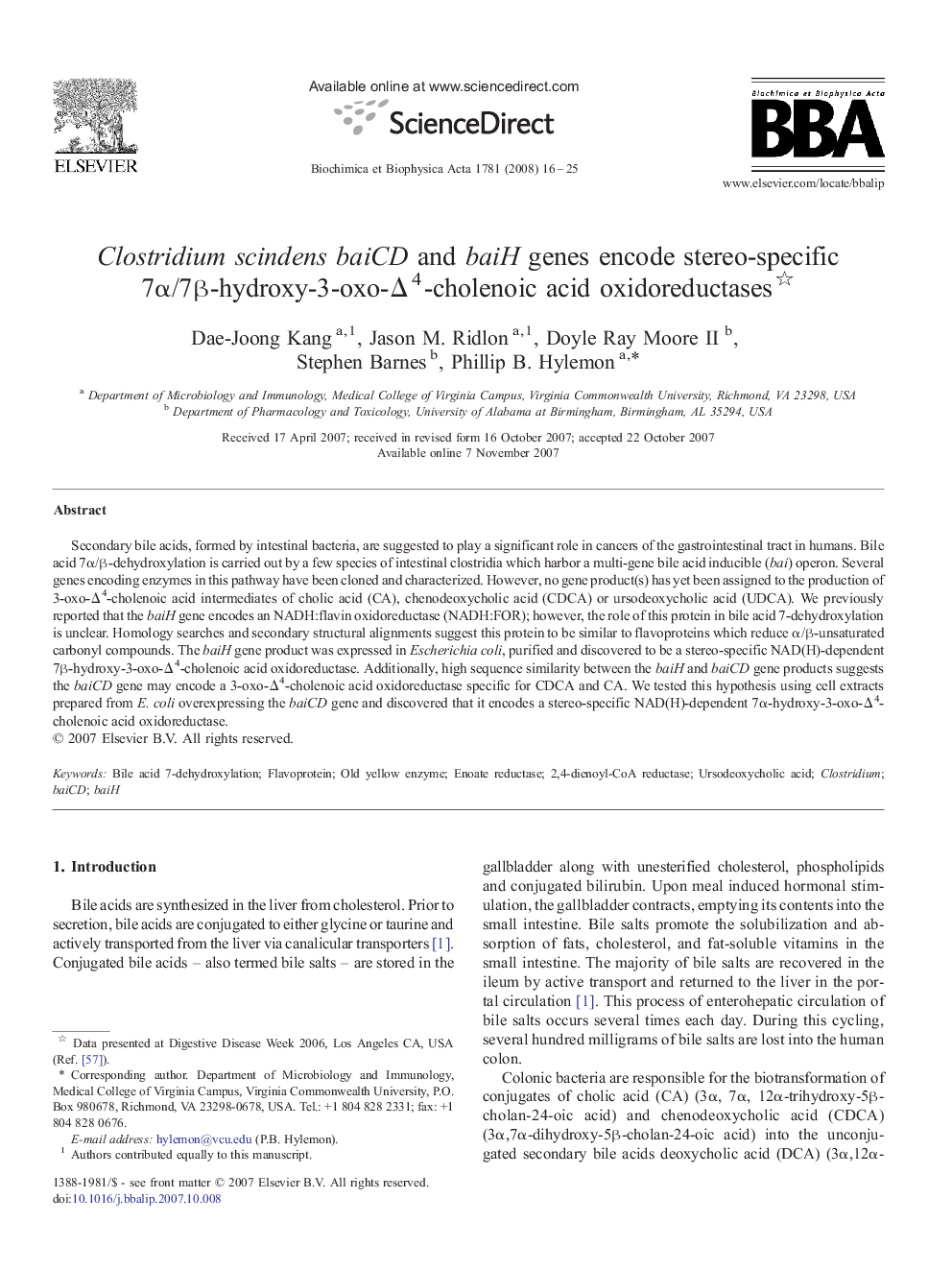| Article ID | Journal | Published Year | Pages | File Type |
|---|---|---|---|---|
| 1950111 | Biochimica et Biophysica Acta (BBA) - Molecular and Cell Biology of Lipids | 2008 | 10 Pages |
Secondary bile acids, formed by intestinal bacteria, are suggested to play a significant role in cancers of the gastrointestinal tract in humans. Bile acid 7α/β-dehydroxylation is carried out by a few species of intestinal clostridia which harbor a multi-gene bile acid inducible (bai) operon. Several genes encoding enzymes in this pathway have been cloned and characterized. However, no gene product(s) has yet been assigned to the production of 3-oxo-Δ4-cholenoic acid intermediates of cholic acid (CA), chenodeoxycholic acid (CDCA) or ursodeoxycholic acid (UDCA). We previously reported that the baiH gene encodes an NADH:flavin oxidoreductase (NADH:FOR); however, the role of this protein in bile acid 7-dehydroxylation is unclear. Homology searches and secondary structural alignments suggest this protein to be similar to flavoproteins which reduce α/β-unsaturated carbonyl compounds. The baiH gene product was expressed in Escherichia coli, purified and discovered to be a stereo-specific NAD(H)-dependent 7β-hydroxy-3-oxo-Δ4-cholenoic acid oxidoreductase. Additionally, high sequence similarity between the baiH and baiCD gene products suggests the baiCD gene may encode a 3-oxo-Δ4-cholenoic acid oxidoreductase specific for CDCA and CA. We tested this hypothesis using cell extracts prepared from E. coli overexpressing the baiCD gene and discovered that it encodes a stereo-specific NAD(H)-dependent 7α-hydroxy-3-oxo-Δ4-cholenoic acid oxidoreductase.
